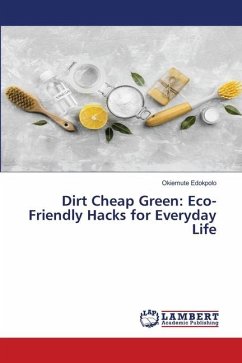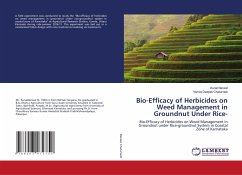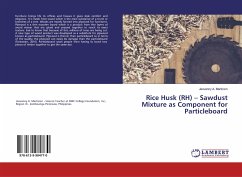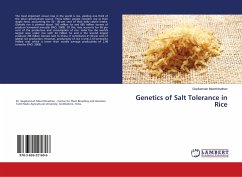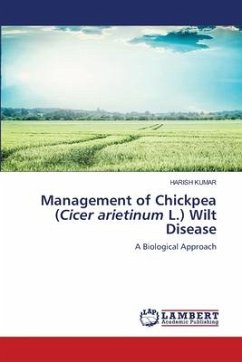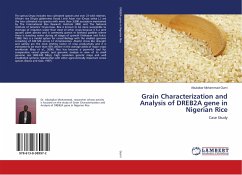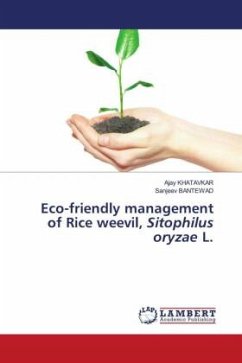
Eco-friendly management of Rice weevil, Sitophilus oryzae L.
Versandkostenfrei!
Versandfertig in 6-10 Tagen
29,99 €
inkl. MwSt.

PAYBACK Punkte
15 °P sammeln!
Out of eight genotypes viz. Dagdi, Parbhani Shakti, Parbhani Jyoti and M-45 were found to be resistant/ tolerance against rice weevil in respect of low ovipositional preference, minimum adult emergence, medium developmental period, minimum per cent seed infestation. While, the genotype viz., Parbhani supermoti were found shortest developmental period and highest seed infestation and weight loss as were highly susceptible to rice weevil in respect of above parameters. Among the all eco-friendly treatments evaluated for their effectiveness against rice weevil the treatment Karanj oil @ 5ml/kg se...
Out of eight genotypes viz. Dagdi, Parbhani Shakti, Parbhani Jyoti and M-45 were found to be resistant/ tolerance against rice weevil in respect of low ovipositional preference, minimum adult emergence, medium developmental period, minimum per cent seed infestation. While, the genotype viz., Parbhani supermoti were found shortest developmental period and highest seed infestation and weight loss as were highly susceptible to rice weevil in respect of above parameters. Among the all eco-friendly treatments evaluated for their effectiveness against rice weevil the treatment Karanj oil @ 5ml/kg seeds followed by Castor oil @ 5 ml/kg seeds and Tobacco leaf powder @ 10 g/kg seeds were found to be the most efficient by reporting minimum preference for ovi-position, adult emergence, seed infestation and total weight loss. Cow dung cake ash @ 10 g/kg seeds and Custard Apple leaf @ 10 g/kg seeds were observed moderately effective against rice weevil.



